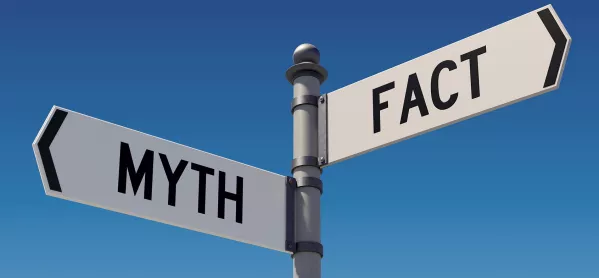Five myths about how school timetables are created

There is a draft of the new timetable for next year on the system and you and a colleague cannot help yourselves: you both look straight to Friday lesson 5.
For you, it’s good news: PPA, guaranteed non-contact time.
For your colleague, disaster: a double lesson with that Year 9 class.
Quick read: A headteacher on decisions about class allocations
Quick listen: Why culture matters in schools
Watch How to timetable for better staff and student wellbeing
You celebrate and start thinking about how you can repay such a gift; meanwhile, the teacher next to you is cursing the name of the timetabler in language that would land any student in immediate detention.
School timetable
But, despite what most teachers seem to think, decisions like this are actually nothing to do with the timetabler. It is the process. Personal feelings don’t come into it. The fact people falsely believe favours, bribes, personalities or anything else can play a role is down to the mystique that has arisen around timetabling.
This perception of the process creates both fear and awe but, truth be told, timetabling is really not that mysterious and timetablers do not have superpowers.
How do I know? I am a timetabler.
Teaching role
You might not expect someone like me to be a timetabler. I’m not a maths teacher, nor am I a devoted data-head. On the contrary, my subject is English, my heart lies in teaching and learning and staff professional development. I’m what my colleagues might describe as a people person.
The ingenious leadership of my school decided that they wanted a deputy head with passion for teaching and learning to be the person involved in big decisions about what is taught, when and by whom.
It makes sense when you think about it.
Challenges of the job
This year is my fourth timetable and I’m glad it’s not my first as it has been a challenge. I’ve always been an advocate of flexible working and I’m determined to allow staff to develop their experience and expertise, so my aspirations for the timetable are ambitious for students’ opportunities as well as staff wellbeing. But the bottom line is that there are always compromises.
Part-time hours, outreach to other schools, just enough staff to cover the load…these are all things that make the job a challenge. But none of them are a reason not to be a timetabler.
What would make the job easier is if some of the myths around timetabling were quashed.
So here are five myths I would like to see banished immediately.
1. Maths teachers make the best timetablers
At the risk of offending my maths colleagues, being a mathematician is not a prerequisite for being an effective timetabler. However, the problem-solving skills that go with maths study probably lend themselves to some of the demands of timetabling.
2. The timetabler makes all the decisions
First, staffing, loads and and curriculum allocations are decided by the headteacher, senior leadership and governors. Then, good practice is for curriculum leaders to make decisions about the detail of who teaches which group. As far as possible, the timetabler will implement these and only change things if they do not fit or they know of a good reason or better solution. This is almost always in consultation.
3. It pays to stay in the timetabler’s good books
In spite of the awe associated with the role and the possibility that it could be abused, most timetablers are part of a system with checks and monitoring, and the timetable itself is a pretty public way to display your work and be held to account.
4. The timetable needs to be done alone, in a quiet place
There is some truth in this one. It requires immense concentration and interruptions can destroy a whole line of thinking. However, a great deal of work on the timetable is shared, involves discussion and needs input from other people.
5. ‘I couldn’t do it!’
This is the most frequently uttered phrase I hear about timetabling. And it just isn’t true. The mystique around the timetable has put colleagues off applying for posts, and it has given status to individuals who don’t necessarily deserve it. The reality is you can learn to do the timetable just as you would learn to play guitar or knit a jumper. But first, you need to believe you can learn it and you need to be brave enough to put your final piece out for public consumption. If you’ve got that, you’ve got the timetable!
Gemma Penny is deputy head (teaching and learning, CPLD) at the Bemrose School in Derby. She tweets @GemmaPenny2
You need a Tes subscription to read this article
Subscribe now to read this article and get other subscriber-only content:
- Unlimited access to all Tes magazine content
- Exclusive subscriber-only stories
- Award-winning email newsletters
Already a subscriber? Log in
You need a subscription to read this article
Subscribe now to read this article and get other subscriber-only content, including:
- Unlimited access to all Tes magazine content
- Exclusive subscriber-only stories
- Award-winning email newsletters
